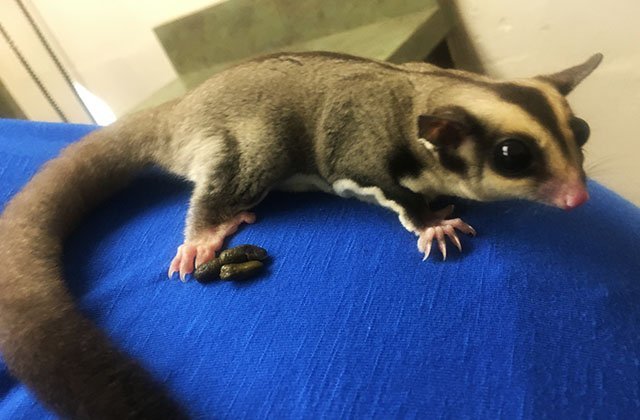Sugar Glider Licking Me
Sugar Glider Licking Me: A Sign of Affection or Something Else?
Have you ever wondered why your sugar glider licks you? Is it a sign of affection or does it mean something else? If you’re a sugar glider owner, you may have experienced this adorable and sometimes confusing behavior. In this article, we’ll explore the reasons behind sugar gliders licking their owners, the meaning behind it, and what it signifies in their social behavior.
Why do sugar gliders lick?
One of the primary reasons why sugar gliders lick is to groom themselves. Like many other small animals, sugar gliders have the instinct to keep themselves clean. They have a specialized tongue that helps them groom their fur and remove dirt or debris from their body. So, if your sugar glider is licking you, it might just be trying to clean you as if you were a part of their social group.
Licking as a bonding behavior
In addition to grooming, licking is also a way for sugar gliders to bond with each other. Sugar gliders are social animals that live in groups in the wild. They form strong bonds with their fellow gliders through various behaviors, and licking is one of them. When a sugar glider licks you, it is essentially trying to establish a bond and show its affection towards you. It’s their way of saying, “You’re a part of my social group, and I care about you.”

Scent recognition and marking territory
Another reason why sugar gliders may lick you is to identify your scent and mark you as part of their territory. Sugar gliders have a keen sense of smell, and they use scent marking as a way to communicate with other gliders. By licking you, they are essentially transferring their scent onto you, claiming you as part of their social circle. It’s their way of saying, “You belong to me, and I belong to you.”
Exploring curiosity and tasting
Sugar gliders are naturally curious animals, and they love to explore their environment. When they lick you, it could simply be their way of investigating and tasting you. They use their tongue as a sensory tool to gather information about their surroundings and gather new experiences. So, if your sugar glider licks you, it might just be curious about your taste or trying to understand more about you.
Frequently Asked Questions
1: Is it safe to let my sugar glider lick me?
It is generally safe to let your sugar glider lick you. Sugar gliders have a small and gentle bite, so you don’t have to worry about them hurting you. However, it’s always a good idea to wash your hands before allowing them to lick you to avoid any potential transfer of bacteria.
2: What should I do if my sugar glider licks me excessively?
If your sugar glider is licking you excessively, it might be a sign of stress or anxiety. Excessive licking can be a self-soothing behavior for sugar gliders. It’s important to observe their overall behavior and environment to identify any potential stressors. If you notice any signs of distress, it’s best to consult with a veterinarian who specializes in exotic pets.
3: How can I encourage bonding with my sugar glider?
To encourage bonding with your sugar glider, spend quality time with them every day. Offer them treats from your hand, provide a comfortable bonding pouch for them to rest in, and engage in gentle play sessions. Building trust and establishing a routine will help strengthen the bond between you and your sugar glider.
Final Thoughts
In conclusion, sugar gliders licking their owners is a multifaceted behavior with several possible meanings. It can be a form of grooming, a bonding gesture, a way to mark territory, or simply an act of curiosity. As sugar glider owners, it’s important to understand and appreciate these behaviors as part of their natural instincts and social interactions. So the next time your sugar glider licks you, embrace it as a sign of their affection and connection with you.






